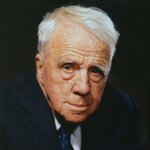


I see so many new fences as I drive through the countryside.
Where none have been before, I see neat, happy picket fences with roses peeking over the boards or the more imposing stockade fences offering their own message to passersby.
Why? I wonder. Is this a landscaping trend? Are people trying to keep things in? Or trying to keep things out? Are they expressing hostility or fear? Or both? Do they have a need for for privacy? Or just because?
There are, of course, good reasons for erecting a fence — to keep animals in or out, maybe. Or are there simply fence salesmen on steroids selling their hearts out? It’s mind-boggling.
“As I drive, I keep thinking about poet Robert Frost’s compelling “Mending Wall.” The winner of four Pulitzer Prizes, Frost is one of my favorites.
The poet died 60 years ago, but his thought-provoking poem offers challenging questions for today, even though it was written in 1914 — or perhaps because it was written then — when battle lines were drawn as World War I began its crushing march through Europe.
“Something there is that doesn’t love a wall,” Frost began, as he pictured two neighbors arranging in spring to repair the crumbling wall that separates their farms. The stones have been dislodged and scattered by winter’s blasts and hunters roaming the fields.
The poem is as much about borders and relationships as it is walls but it also portrays a certain sense of loneliness and isolation. Did our Covid timeout bring about this current building of fences? I did start to notice them as the pandemic was winding down.
The first neighbor obviously thinks the wall is unnecessary; the second finds comfort in the old axiom, “Good fences make good neighbors.”
The poem reflects my own quandary about whether the people are wanting to keep things in or keep things out. And does not, now, a little more than a century since it was written, answer the questions I pose.
Like the first farmer in the poem, I don’t see the necessity of fences although I don’t dislike people who need or want them, but I also see the futility of believing they will prevent conflict.
Frost, sketching the differences in the neighbors’ philosophies, notes they walk parallel to each other on either side of the wall on their own land.
The first farmer, says of his neighbor, “He is all pine and I am apple orchard.”
To me that further reflects the political and religious divisiveness that consumes our country today.
A bit later he adds,
“Before I built a wall I’d ask to know
What I was walling in or walling out,
And to whom I was like to give offense.
Something there is that doesn’t love a wall,
That wants it down.”
His neighbor, disagreeing, returns to: “Good fences make good neighbors,” repeating it once again.
I see in the poem two men, one laid back, comfortable and trusting, and one who needs a barrier, perhaps because he expects conflict and wants to avoid it. Two men with separate priorities.
And yet while the poem shows a gentle disagreement, today’s separation seems to indicate hatred and animosity, a blistering put-down to the opinions of others. It looms like a canyon, deep and unbridgeable.
Fences, like walls, are a symbol of this. They make me sad.
Kathryn Finegan Clark is a freelance writer who lives in Durham Township. She can be reached at kathyclark817@gmail.com.
Join our readers whose generous donations are making it possible for you to read our news coverage. Help keep local journalism alive and our community strong. Donate today.